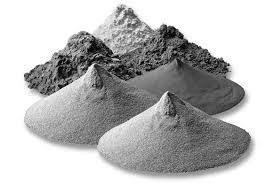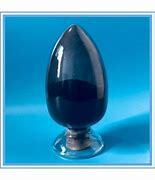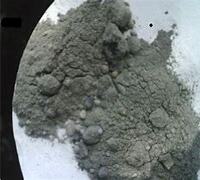Cobalt-based 3D printing powders are specialized metal powders designed for advanced additive manufacturing processes, particularly Direct Metal Laser Sintering (DMLS) and Binder Jetting. These powders are primarily composed of cobalt, mixed with chromium, tungsten, and sometimes nickel or molybdenum, forming cobalt-chromium (CoCr) alloys. Known for their excellent biocompatibility, high wear resistance, and corrosion resistance, cobalt-based powders are prominently used in applications where these properties are crucial.
Biocompatibility: Cobalt-chromium alloys are highly biocompatible, making them suitable for medical implants and dental prosthetics.
High Wear Resistance: The combination of cobalt with chromium and tungsten provides excellent wear resistance, ideal for parts subject to friction or repetitive stress.
Corrosion Resistance: Cobalt-based alloys demonstrate high resistance to corrosion, making them suitable for use in harsh environments.
Strength and Toughness: These alloys offer a balance of high strength and toughness, ensuring durability under demanding conditions.
Precision and Complexity: 3D printing with cobalt-based powders allows for the creation of highly complex geometries and precise parts, beneficial for customized medical solutions.

(3d printing dental metal alloy powder CoCrMo CoCrW cobalt chromium Audental alloy powder)
The 3D printing of dental metal alloys powders, such as CoCrMo, CoCrW, Cobalt Chromium, and Auental, can be controlled by adjusting various parameters such as the powder size, porosity, temperature, and pressure. 1. Powder Size: The size of the powder plays a crucial role in determining its mechanical properties and printing quality. Generally, smaller particles provide better flowability and homogeneity, but may result in reduced strength and resistance to deformation. Therefore, it is essential to choose the appropriate powder size based on the specific application requirements. 2. Porosity: Porosity refers to the percentage of the surface area that is empty or void in the powder. Porous materials generally have higher mechanical properties than dense materials due to their decreased surface area, but they can also affect print quality by altering the processability of the powder. Therefore, controlling porosity is an important parameter for optimizing the performance of the 3D printer. 3. Temperature: The temperature during powder melting and solidification affects the particle size, distribution, and mechanical properties of the final product. High temperatures can cause the powder to coarsen and decrease particle size, while low temperatures can lead to undercoating and imprecise powder distribution. Therefore, choosing the appropriate temperature is crucial for achieving optimal results. 4. Pressure: The pressure applied during powder compaction affects the bonding behavior between the powder particles and the build plate. Higher pressures can increase the density of the powder, leading to better adhesion and stronger bonds. However, excessive pressure can cause thermal stress and affect the print quality. Therefore, controlling the pressure is an important parameter for achieving optimal printing results. In summary, the control of these parameters is critical for optimizing the performance of 3D printing systems for dental metal alloys powders like CoCrMo, CoCrW, Cobalt Chromium, and Auental. By carefully selecting and adjusting these parameters, manufacturers can achieve superior prints with high consistency, reliability, and durability.

(3d printing dental metal alloy powder CoCrMo CoCrW cobalt chromium Audental alloy powder)
Medical Implants: Hip and knee replacements, spinal implants, and maxillofacial implants benefit from the biocompatibility and durability of cobalt-chromium alloys.
Dental Prosthetics: Crowns, bridges, and frameworks for removable partial dentures leverage cobalt-based powders for their strength and aesthetics.
Aerospace: Components requiring high wear resistance and durability in aircraft engines and turbines can be fabricated using cobalt-based alloys.
Tooling and Dies: Due to their wear resistance, cobalt-based powders are used for manufacturing complex tooling and injection molding dies.
High-Temperature Applications: Components exposed to high temperatures, such as those in the energy sector or automotive industry, can benefit from the heat resistance of these alloys.
Company Profile
Kmpass is a trusted global chemical material supplier & manufacturer with over 12-year-experience in providing super high-quality 3D printing powder and relative products.
The company has a professional technical department and Quality Supervision Department, a well-equipped laboratory, and equipped with advanced testing equipment and after-sales customer service center.
If you are looking for high-quality 3D printing materials and relative products, please feel free to contact us or click on the needed products to send an inquiry.
Payment Methods
L/C, T/T, Western Union, Paypal, Credit Card etc.
Shipment
It could be shipped by sea, by air, or by reveal ASAP as soon as repayment receipt.
Q: Is 3d printing dental metal alloy powder CoCrMo CoCrW cobalt chromium Audental alloy powder suitable for long-term implantation in the human body? A: Yes, cobalt-chromium alloys are widely accepted and used for long-term implants due to their excellent biocompatibility and durability.
Q: How does the cost of 3d printing dental metal alloy powder CoCrMo CoCrW cobalt chromium Audental alloy powder compare to traditional manufacturing methods for medical implants? A: While initial setup costs can be high, 3D printing allows for customization and reduced waste, potentially offsetting costs over traditional manufacturing for complex or low-volume production runs.
Q: Is 3d printing dental metal alloy powder CoCrMo CoCrW cobalt chromium Audental alloy powder difficult to work with compared to other metal powders? A: Cobalt-based powders can be challenging due to their high melting points and specific sintering requirements, necessitating careful process control and experienced operators.
Q: Can cobalt-based 3D printed parts be post-processed for improved surface finish? A: Yes, common post-processing steps like machining, polishing, and surface treatments can be applied to enhance the finish and meet specific application requirements.

(3d printing dental metal alloy powder CoCrMo CoCrW cobalt chromium Audental alloy powder)



